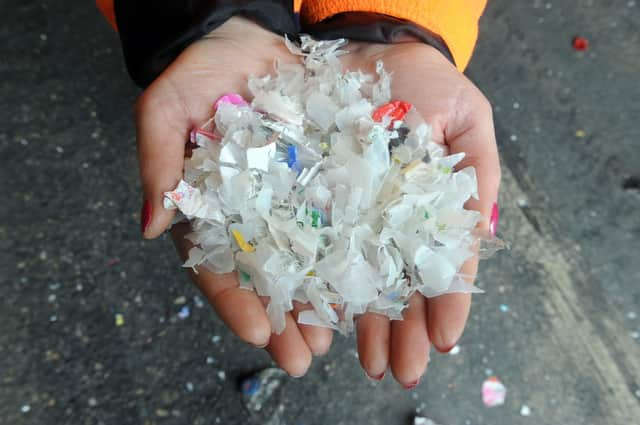Column: Andrew Jones MP - Reducing, reusing and recycling plastic


It is affecting us already; we need to mitigate the effects of climate change and biodiversity loss and reverse them.
This month I want to focus on the impact of plastic and what we need to do to reduce its negative impact.
Five million tonnes of plastic is used annually in the UK.
Advertisement
Hide AdAdvertisement
Hide AdA study by The Ocean Cleanup, a charity aiming to rid our oceans of plastic, stated that levels of microplastic pollution in the North Atlantic may soon exceed safe limits for marine organisms with eight million pieces of plastic entering our oceans annually.
The Ellen MacArthur foundation estimated in 2017 that by 2050 there would be more plastic by weight in the oceans than fish.
Action is needed to prevent irreversible damage to the marine environment.
Fortunately, we have made progress.
There is 10 per cent less plastic on supermarket shelves since 2018 and ‘problematic’ plastics - plastics that cannot be recycled and don’t biodegrade - have fallen by 46 per cent.
Advertisement
Hide AdAdvertisement
Hide AdFurthermore, the Government’s plastic bag charge has cut their use by 95 per cent since 2015.
Clearly Government policies like this work and I hope and expect the ban on single-use plastic straws, cotton buds and drink stirrers has the same impact.
My inbox tells me that people want progress and are asking what can we as individuals do to help?
A move to measure how much plastic households throw out, The Big Plastic Count, took place in May. The results indicated that households threw away 66 pieces of plastic a week. We can do better than this.
Advertisement
Hide AdAdvertisement
Hide AdWe could only buy products that are recyclable, reuse plastic products as much as we can and, where possible, cut out buying plastic. When consumers move their buying habits producers change what they produce.
Recycling is a good thing which makes the best use of our finite resources. However, the best way to guarantee plastic doesn’t end up in landfill or in our environment is to use less of it.
I want to use my position to raise awareness of the need for plastic reduction and ensure that it is discussed in Parliament.
Over the coming months I will be working with residents to explore plastic use in our area and how much plastic is re-used or recycled.
Advertisement
Hide AdAdvertisement
Hide AdI will also be meeting with businesses to hear about the ways they are actively reducing, reusing, and recycling the plastic they produce or use. There are already examples of very good practice.
Crucially, what I want to see are households, businesses and local government working together to cut the plastic in the waste stream, with government supporting and enforcing that better.
Plastic cannot and should not be banned. But its use and impact can be minimised and working together can make that happen.